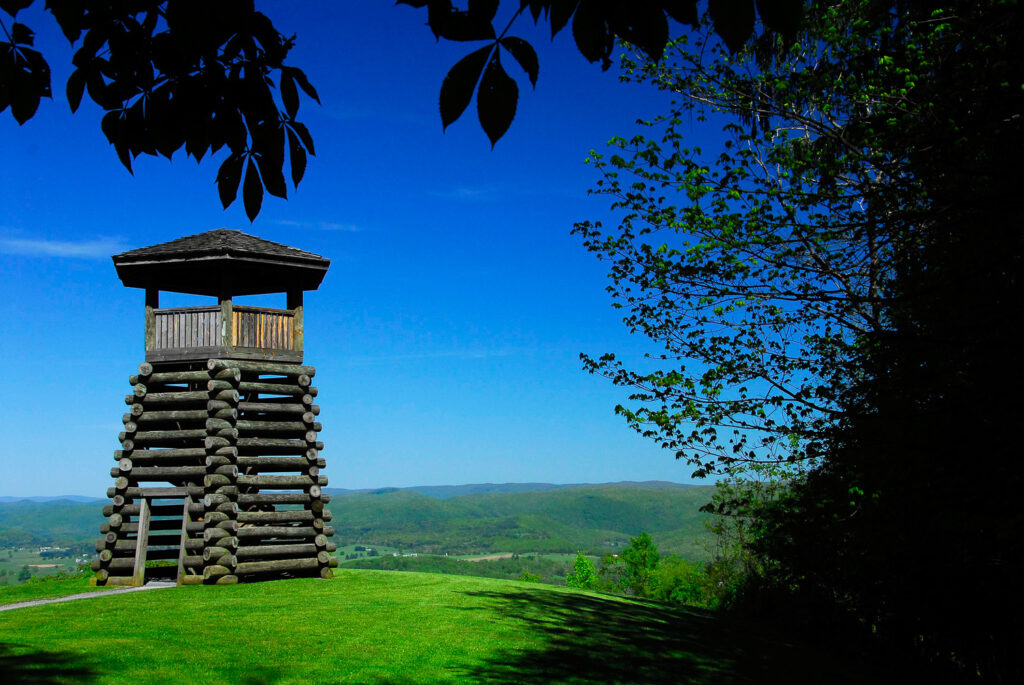On this day 95 years ago, Droop Mountain Battlefield State Park was dedicated in Pocahontas County.
As many would say, it was the right date.
That’s because the violent 1863 skirmish for which the park is named was, in a sense, West Virginia’s War of Independence.
Although West Virginia had joined the Union in June of that year, the Confederacy still maintained a strong military presence within the winding new borders of the only American state created by the Civil War.
On the cold morning of November 6th, before the ink was even dry on West Virginia’s statehood papers, all was revealed.
About 5,000 men in blue uniforms took up positions on the summit of Droop Mountain against 1,700 men in gray uniforms, putting both the town of Lewisburg and the Virginia and Tennessee Railroad at risk.
The first gunfire rang out at 11 a.m., and by 1:45 p.m. the enemies were staring each other down.
Brutal hand-to-hand combat ensued.
By 3:00 p.m., the Confederates began to withdraw, reporting that they were being overwhelmed by Union soldiers.
An hour later, they began their general withdrawal. The battle was over. It was estimated that approximately 275 gray-uniformed soldiers died on the battlefield. Another 119 Union soldiers became casualties of the war.
The Confederates never again attacked the new state of West Virginia.
“Well, they certainly were tenacious,” author and archivist Stan B. Cohen said by phone from his home in Montana two days before the Fourth of July.
“I always thought it was a West Virginia thing,” the longtime Missoula resident said.
It was mostly sunny on July 4, 1929, the day Droop Mountain became West Virginia’s first state park.
According to newspaper reports, as many as 10,000 people flocked to the site to see all this work.
Speeches and proclamations were made, and even more moving, several elderly Civil War veterans from both sides gathered to shake hands.
Logos and the Final Frontier
Missoula is where Cohen, a Charleston native and West Virginia University graduate, began making a name for himself.
He likes to enjoy the wide open sky and all the ranges west of the Rocky Mountains that he can see from his window, but if you ask him, he’ll still proudly proclaim his Mountain State ancestry.
“Everybody here knows I’m from there,” he said.
“I was just talking to the guy at the bank about Jerry West. I’m from West Virginia and I tell everyone I happen to live in Montana.”
Cohen graduated from West Virginia University in 1960 with a degree in geology.
During his time in college, he was excited about the aforementioned West Division basketball triumph, providing a cool, steely contrast to Hot Rod Hundley, who combined his prowess at the game with a flamboyant flirtation and comedic talent.
He said it was a good time to be a fan of the Mountaineers, West Virginia University’s basketball team.
Spectators were packed into the now-defunct Stansbury Fieldhouse on Beecherst Street, where the seating extended almost to the floor of the court.
Dust rained down from the roof as fans stomped their feet in appreciation (and, when they weren’t pleased, used colorful language and creative insults).
Cohen was born in the Mountain State capital in 1938, the son of Benjamin Franklin Cohen and Ruth Lieberman Cohen.
He graduated from West Virginia University and worked briefly in the oil and gas industry here before taking jobs with the U.S. Forest Service in Montana and Alaska.
The West Virginian is a small business owner and publishing company founder and owner.
His 1976 book, “A Pictorial Guide to West Virginia’s Civil War Sites,” bears the stamp of Pictorial Histories Publishing Co. in his hometown of Charleston, which he later sold to a friend.
In the West, he is known primarily as a writer and historian.
“I’m probably a little bit better known in Alaska than I am in Montana,” he said.
He has written more than 70 books and published nearly 400 books on every subject from wildlife to military history.
He has written at least 15 books about America’s last frontier and is the recipient of a state Alaska history award.
At 86, he’s currently writing a historical study of American monorail and alternative transit systems and has no plans to slow down. “Does Morgantown still have PRT?” he asks.
The war is as much about real estate as it is about ideology, and the Mountain State is a revolution of place in both respects, Cohen said.
It’s home.
“I haven’t been back to West Virginia in six years, and it’s starting to bother me.”


